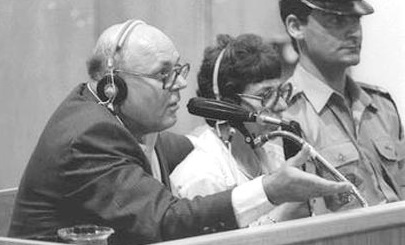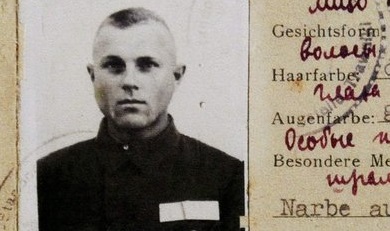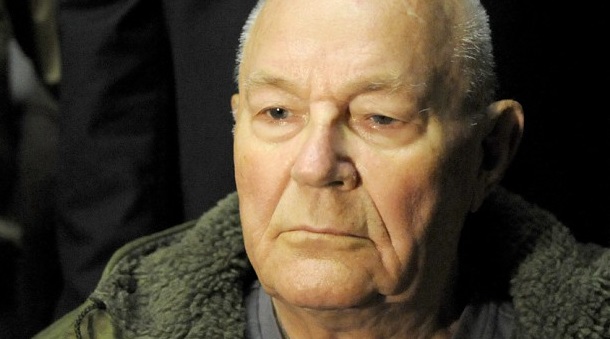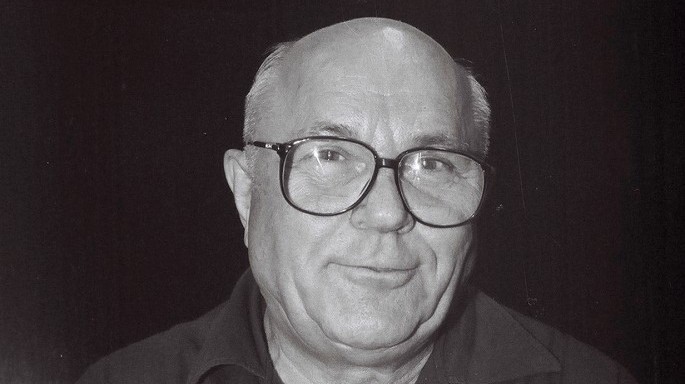John Demjanjuk was a retired Ukrainian-American auto worker, a former soldier in the Soviet Red Army, and a Prisoner of War during World War II. Take a look below for 30 more interesting and bizarre facts about John Demjanjuk.
1. Demjanjuk was convicted in 2011 in Germany as an accessory to the murder of 28,060 Jews while acting as a guard at the Sobibor extermination camp in occupied Poland.
2. Since his conviction was pending appeal at the time of his death, Demjanjuk remained not guilty under German law, since his conviction had not gone through the appeal judgment.
3. According to the Munich state court, Demjanjuk doesn’t have a criminal record.
4. He was born in Ukraine and, during World War II, was drafted into the Soviet Red Army, where he was captured by Germans as a Soviet Prisoner of War.
5. In 1952, he emigrated from West Germany to the United States and was granted citizenship in 1958, whereupon he formally anglicized his name from “Ivan” to “John.”

6. In 1986, he was deported to Israel to stand trial for war crimes, after being identified by eleven Holocaust survivors, many from Israel, as “Ivan the Terrible,” a guard at the Treblinka extermination camp in Nazi occupied Poland.
7. Demjanjuk was accused of committing murder and acts of extraordinarily savage violence against camp prisoners during 1942 and 1943.
8. He was convicted of having committed crimes against humanity and sentenced to death in 1988, but the verdict was overturned by the Israeli Supreme Court in 1993, based on new evidence that cast reasonable doubt over the identity of “Ivan the Terrible.”
9. Demjanjuk was nearly a decade younger than “Ivan the Terrible,” who was believed to have been born around 1911.
10. After the trial, in September 1993, Demjanjuk returned to his home in Ohio, United States.
11. In 1998, his citizenship was restored after a United States federal appeals court ruled that prosecutors had suppressed exculpatory evidence concerning his identity.
12. In 2001, with new evidence, Demjanjuk was charged again, this time on the grounds that he had served as a guard named Ivan Demjanjuk at the Sobibor and Majdanek camps in Nazi occupied Poland and at the Flossenburg camp in Germany.

13. Demjanjuk became a stateless person in 2002, until his death in 2012.
14. His deportation was again ordered in 2005, but after exhausting his appeals in 2008, he still remained in the United States, as no country would agree to accept him at that time.
15. On April 2, 2009, Germany announced that Demjanjuk would be deported to Germany, where he would stand trial.
16. On May 11, Demjanjuk left his Cleveland home by ambulance and was taken to the airport, where he was deported by plane, arriving in Germany the next morning.
17. On July 13, he was formally charged with 27,900 counts of acting as an accessory to murder, one for each person who died at Sobibor during the time he was alleged to have served as a guard.
18. On November 30, Demjanjuk’s trial began in Munich.

19. On May 12, 2011, Demjanjuk was convicted pending appeal by an ordinary German criminal court as an accessory to the murder of 27,900 Jews at Sobibor and sentenced to five years in prison.
20. The interim conviction was later annulled, because Demjanjuk died before his appeal could be heard.
21. After the conviction, he was released pending trial and the final verdict by the German Appellate Court.
22. He lived at a German nursing home in Bad Felinbach, where he died on March 17, 2012.
23. Despite decades of legal wrangling and controversy, Demjanjuk died a free man and legally innocent as his appeal had not been heard and decided.
24. Demjanjuk died at a home for the elderly in Bad Felinbach, Germany on March 17, 2012, at the age of 91.
25. As a consequence of his appeal not having been heard, Demjanjuk’s conviction of May 2011 by a lower court was invalidated; and he died without a criminal record.

26. Demjanjuk’s lawyer, Dr. Ulrich Busch, had demanded that the Munich court publish a clarifying statement that Demjanjuk was presumed innocent and without a criminal record, “given the false statements in international media reports that Demjanjuk died a convicted war criminal.”
27. Following his death, his relatives requested that he be buried in the United States, where he used to live.
28. Jewish organizations have opposed this, claiming that his burial site would become a center for neo-Nazi activity.
29. On March 31, 2012, Demjanjuk was reported to be buried at an undisclosed U.S. location, now known to be the Ukrainian section of the Brooklyn Heights cemetery in Parma, Ohio.
30. On June 28, 2012, the 6th U.S. Circuit Court of Appeals in Cincinnati ruled that Demjanjuk couldn’t regain his citizenship posthumously.




